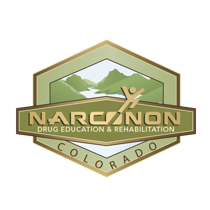Does Legal Weed Lead to Heroin? Ask Colorado

In all my years of writing blogs, I’ve come to realize that if I write about certain topics, the mass public might have a strong emotional response. In a sea of digital content at our fingertips, we can go online and read just about anything. We can read about new technology to make our lives easier, new recipes to cook for Thanksgiving, reviews on something we’re thinking of buying off Amazon, or what’s currently happening in the news. Of all the things that are blogged about, it seems the overall topic of addiction elicits the strongest response in people, which makes sense. The addiction crisis has literally destroyed countless families, and many lives have been lost in the fight against drug abuse. Many people’s lives have been irreparably damaged by this issue. Certain topics, however, elicit such a strong emotional reaction in readers that it becomes more focused on the opinionated assault of the writer and less about what the article is about.
The broad public can have extremely strong opinions in regard to marijuana, Suboxone, and Kratom. It seems like all a blogger has to do is write about any one of these topics and there will be a comments section full of opinions, many of which from people who didn’t even read the article but just saw the title and decided to put their two cents in. Which is totally fine. Everyone is entitled to their opinions, it’s one of the beautiful parts of living in a free nation. But what gets lost is the actual reason for these articles being written. For me personally, it’s about looking at both sides of an argument, however, anytime I write about any of those three topics, I know what to expect.
Marijuana legalization has been a hot-button issue for years. You’ve got its supporters and its detractors. You’ve got those who see all the benefits of legalizing marijuana for recreational purposes, and you’ve got those with a million reasons why it’s a bad idea. I don’t necessarily need to get into an argument about marijuana legalization because, whether you like it or not, it’s a thing. Many states have fallen behind Colorado in legalizing marijuana for recreational use, or, at the very least, decriminalizing its use and possession. What I’ve been looking at is whether or not this legalization has led to an increase in other drug use. And no, I’m not getting into the “gateway drug” argument.
In looking at statistics, it appears that heroin use has been on a steady incline in Colorado since the state legalized marijuana.

Other states such as Alaska and Oregon have also seen steady increases in heroin use as well following the legalization of marijuana according to this graph.
In the face of the opioid crisis in the United States, there have been many studies and there are those who believe that legalizing marijuana will help curb the opioid problem and therefore, be a “good thing.” According to the NCBI and National Institutes on Health, “It is difficult to translate population-level analyses to individual marijuana-opioid substitutions, and this patient population is a rather small percentage of people who may be using opioids and/or medical marijuana. In 2017 Colorado had a record number of opioid overdose deaths from any opioid, including heroin and Colorado has had a medical marijuana program since 2001.”
There are always two sides to a story. When it comes to something as emotionally charged as marijuana legalization, it’s easy to go down a rabbit hole of data that poses legal weed as a good thing and conversely, there’s a lot of information to the contrary.
I personally don’t think much good can come from a mass state legalization of weed in this country because we already have enough problems with drug use as it is, so it doesn’t make sense to me to grant easier access to something considered a “soft drug.” Drug problems don’t get solved with more drugs. They get solved with more solutions to handling addiction.
Sources:


